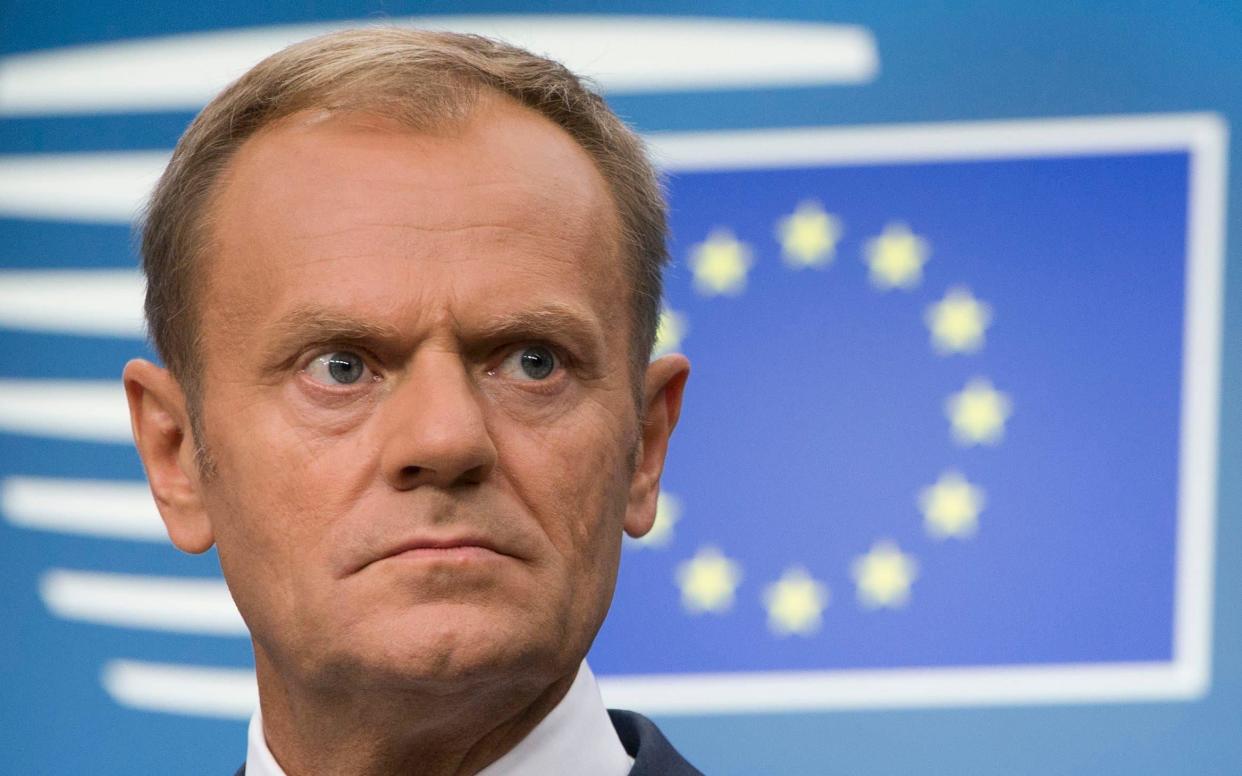Remember who your real friends are, Trump warned by EU on eve of Nato summit

Donald Tusk, the president of the European Council, has told Donald Trump to remember who his real friends are when he meets Vladimir Putin after a Nato summit set to be dominated by a row over Europe’s defence spending.
“America does not have, and will not have a better ally than Europe,” Mr Tusk said.
“Dear America, appreciate your allies. After all, you don't have that many.”
Mr Trump responded to the comments in passing in a chat with reporters before his flight to the summit, saying the US has many allies but they must treat America fairly.
Mr Tusk, a former prime minister of Poland, also invoked the deaths of 870 European soldiers who had fought and died alongside their American allies in Afghanistan since the 9/11 attacks.
He told Mr Trump to please remember their sacrifice at the summit but, “above all”, to keep it in mind when he meets Vladimir Putin in Helsinki for a meeting on 16 July which has caused anxiety in Eastern Europe amid fears it could bolster Russia and weaken the transatlantic relationship.
“I want to dispel the American President's argument, which says that the US alone protects Europe against our enemies, and that the US is almost alone in this struggle,” he said.
“It is always worth knowing: who is your strategic friend? And who is your strategic problem?” said Mr Tusk, who is regularly critical of Mr Putin.
Getting ready to leave for Europe. First meeting - NATO. The U.S. is spending many times more than any other country in order to protect them. Not fair to the U.S. taxpayer. On top of that we lose $151 Billion on Trade with the European Union. Charge us big Tariffs (& Barriers)!
— Donald J. Trump (@realDonaldTrump) July 10, 2018
Mr Trump arrives in Brussels on Tuesday evening for the summit amid fears he could pull US troops out of Europe unless defence spending is increased. He gave EU leaders a public dressing down for not hitting their 2 percent of GDP defence spending targets at the last Nato summit in May 2017.
The US president tweeted on Tuesday: “The US is spending many times more than any other country in order to protect them. Not fair to the US taxpayer. On top of that we lose $151 Billion on Trade with the European Union.”
He later told reporters that his meeting with Mr Putin, which follows the summit and a visit to Britain, could be "the easiest of them all".
While the US spent 3.58 percent of its GDP in 2017 and the UK 2.14 percent, only six Nato members hit the target. France (1.79 percent) and Germany (1.22 percent) are among the EU countries who do not but both have pledged to increase their spending.
NATO | Member countries
The EU and Mr Trump have been at loggerheads over a looming trade war sparked by the president’s imposition of tariffs on steel and aluminium imports. Nato officials stressed this was a separate issue to the security concerns of the alliance.
There are also deep divides between the US and EU over Mr Trump’s decisions to pull out of the Iran nuclear deal and Paris Agreement on climate change.
The UK is one of a few European nations to meet NATO’s 2% target
Mr Tusk was at Nato headquarters with Jean-Claude Juncker, the president of the European Commission and Jens Stoltenberg, the Nato secretary general, to sign a declaration of EU-Nato cooperation. Most, but not all, of the EU’s 28 member states are Nato members.
Mr Stoltenberg said that European Nato members and Canada were increasing their defence spending. Nato estimates that $266 billion would be spent in Europe and Canada on defence between now and 2024.
Nato defence expenditure and major annual exercises involving US troops
“For decades our nations were cutting, cutting defence spending by billions of dollars. Now they are adding, adding billions of dollars,” he told reporters.
“I’d like to thank President Trump for his leadership on defence spending. It is clearly having an impact,” he added.
Mr Juncker said that the EU had decided to take responsibility for its own security through measures such as pooling defence research funding, rather than rely on the US.

